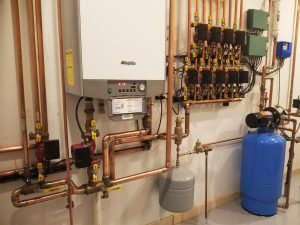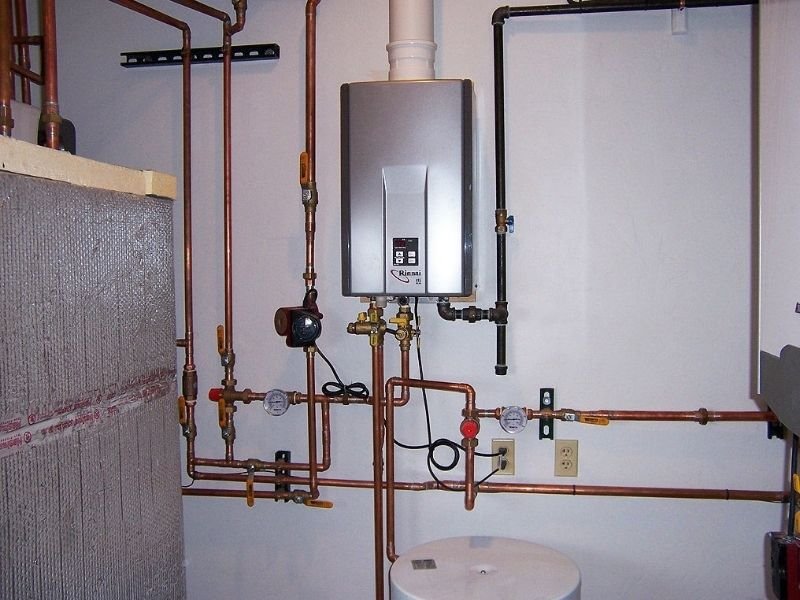
- December 1, 2025
- info@maptoppers.com
- 0
How to Prep Your Boiler Before Colorado Winters
How to Prep Your Boiler Before Colorado Winters

When the Colorado temperatures start to drop, your boiler becomes the unsung hero of your home. But before winter settles in, a little preparation can make all the difference between cozy comfort and an unexpected cold snap. Proper boiler maintenance in Colorado ensures your system runs efficiently, safely, and reliably all season long—saving you from costly breakdowns when you need heat the most.
At Sinrom Construction, we know what it takes to keep Colorado homes warm. Our team specializes in boiler systems designed for high performance in tough mountain conditions. From detailed inspections to preventive tune-ups, we’re your ultimate choice for getting your boiler winter-ready—because when it comes to heating, we don’t just service systems, we perfect them.
Why Boiler Prep Matters in Colorado
Boilers here face tougher conditions than systems on the Front Range. Between high altitude, sudden cold snaps, and older mountain homes, the margin for error is small.
- Frozen or clogged lines can leave you without heat overnight.
- Neglected filters or pumps make your boiler work overtime until it fails.
- Weak pressure or ignition issues show up just when you need hot water the most.
- Poor venting can even risk carbon monoxide leaks, something you never want to gamble on.
That’s why boiler maintenance in Colorado isn’t optional. We get plenty of calls for “emergency fixes,” but most of those breakdowns could’ve been prevented with a simple checkup before the snow started falling.
Steps to Winterize a Boiler
This is where you can save yourself the headache, and the repair bill. A little time now keeps your home warm when the storms roll in.
- Check the pressure: A healthy boiler should sit in the 12–15 psi range. If it’s off, bleed the radiators or call a pro before problems spread.
- Check for leaks and rust: Don’t ignore a drip under the unit or a spot of rust. Little things now could mean broken pipes later.
- Listen to the sounds: Bangs, whistles, and gurgles aren’t just annoying; they’re also warnings. Boilers should run quietly; if they make strange noises, something is wrong.
- Make sure vents and flues are clear: Snow, nests, or trash can block airflow, which makes things less efficient and more dangerous.
- Check the thermostat: When you turn it up, make sure the heat really comes on. In January, a broken thermostat isn’t fun.
- Test the thermostat: Make sure the heat actually kicks on when you turn it up. A dead thermostat in January isn’t fun.
- Book a tune-up: This is the step most people skip. A professional check catches hidden issues, improves efficiency, and pays for itself in lower bills.
The benefits of a pre-winter boiler checkup go beyond comfort; it’s about keeping your family safe and your system alive another season.

Call Sinrom Before the Freeze
Doing a little prep yourself goes a long way, but nothing replaces a full boiler service before winter. At Sinrom Construction, we’ve worked on systems in mountain cabins, remodels, and post-fire rebuilds, and we know what works when the snow sticks.
When folks search for Colorado boiler repair near me, they’re usually already in trouble. Don’t wait until then. Give us a call at 970.389.2501, and we’ll make sure your boiler is ready to carry you through another Colorado winter—no surprises, no disappearing crews, just solid work that lasts.
FAQ's
What’s the average cost of boiler maintenance in Colorado?
It depends on your setup. Older mountain systems tucked into crawlspaces can take a little more time than newer models, but generally, the cost of boiler maintenance in Colorado runs a couple hundred bucks.
Why do boilers fail in winter more often than other times of year?
Because that’s when they’re under the most pressure; literally and figuratively. Cold air, frozen condensate lines, and neglected parts all pile on. We’ve seen boilers give up mid-blizzard just because no one checked a simple filter. Regular boiler maintenance in Colorado is what keeps those small issues from turning into a no-heat nightmare.
How often should I schedule boiler service for my home?
Once a year, without fail, ideally before the snow starts stacking up. You wouldn’t skip an oil change before a road trip, right? Same logic. Routine service helps catch worn parts early and keeps your system running efficiently. That’s the best way to extend boiler lifespan with maintenance and avoid replacing it before its time.
What are the signs that my boiler needs professional attention?
If your system starts sounding like a coffee pot on its last legs or the heat takes forever to kick in, that’s your warning. Uneven warmth, rising energy bills, or that faint “metal” smell are all red flags too. Around here, we tell folks, if it’s acting weird, don’t wait. A quick check saves a lot of cold nights.
